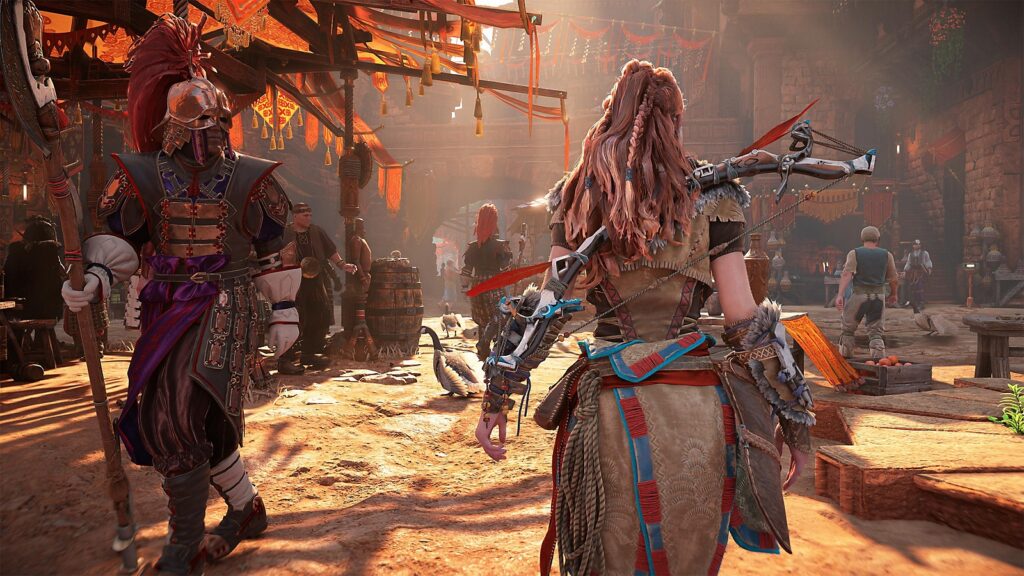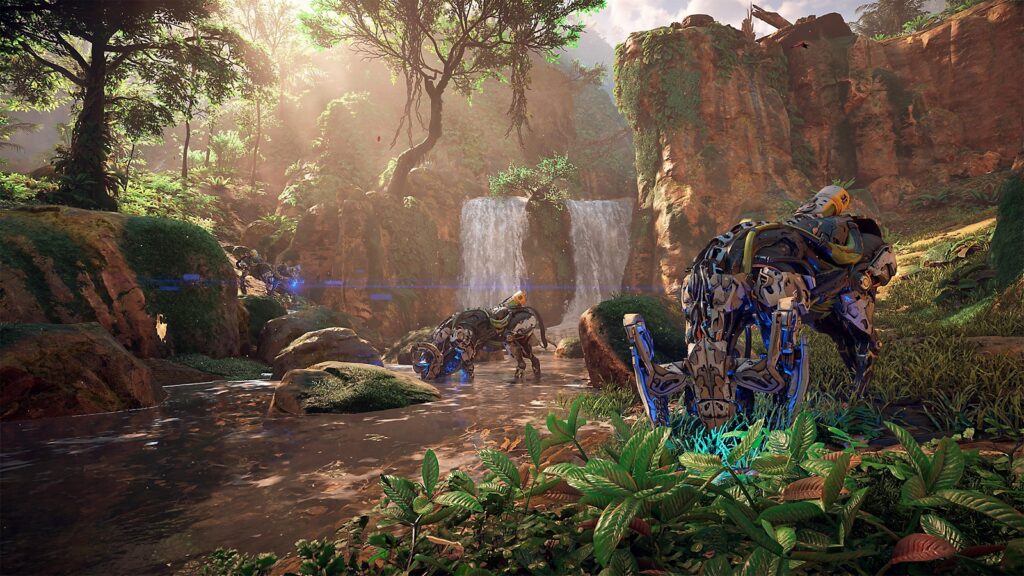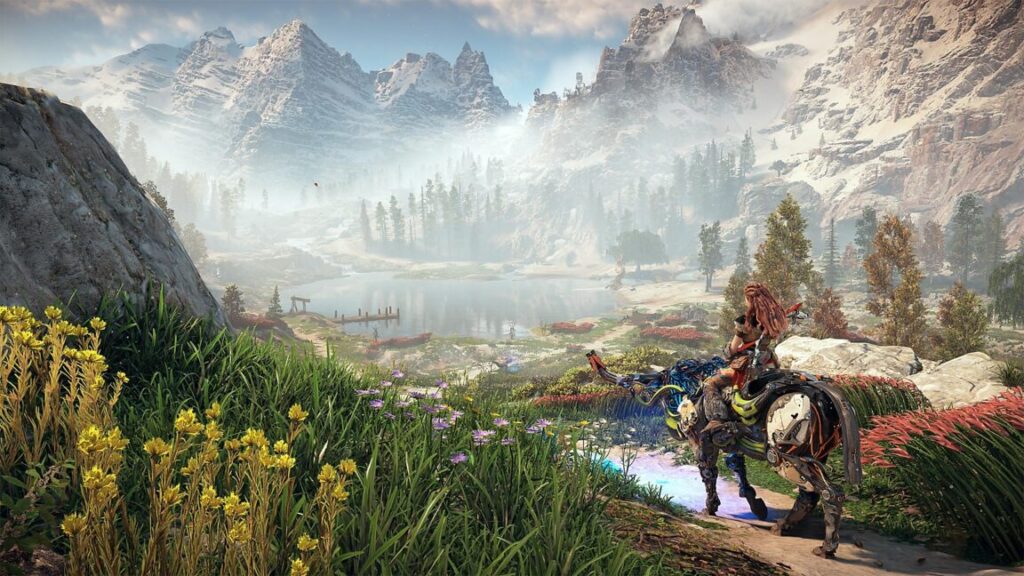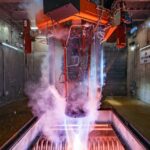So when Sony put out the recent “remaster” of Zero Dawn, I was cautiously optimistic. Any sort of non-half-assed PS5 reworking ought to reduce load times, right?
Machines make it hard to enjoy the view.
Machines make it hard to enjoy the view.

So many more people in the towns. It’s starting to feel a bit crowded!
So many more people in the towns. It’s starting to feel a bit crowded!

Everything about the game looks good.
Everything about the game looks good.
So many more people in the towns. It’s starting to feel a bit crowded!
Everything about the game looks good.
I meant to dip into the world of Zero Dawn only for a few hours, but I ended up playing through the whole game and its expansion, The Frozen Wilds, over the last few weeks. The arrow-based gameplay, complex story, and voice acting were still terrific, and the remastered elements were far more than a simple cash-in. Even little things, like the way the adaptive triggers on the PS5 controllers mimic the tension of a bowstring, felt perfect.
I didn’t expect to get sucked back into the game’s world for so many hours, but I had a great time doing it and wanted to spread the good word for those who might be looking for an engaging single-player experience over the holidays.
Big changes
When it comes to major changes, the remaster has three.
First, the game loads fast. It feels like a ground-up PS5 title. Death—and its attendant reloads—no longer makes me want to throw my controller across the room during difficult battles. It’s great.
Second, the game looks unbelievable. This is not a case of just upping the resolution to 4K and calling it a day. Sony claims that the game features “over 10 hours of re-recorded conversation, mocap and countless graphical improvements that bring the game to the same visual fidelity as its critically acclaimed sequel.” Also, the game’s characters have “been upgraded, bringing them in line with current generation advances in character models and rendering.”
This is not just marketing fluff. The faces look incredible, even in close-up cinematic interludes, but what really caught my eye was the lighting. From the moment a young Aloy spelunks into a cave and finds an electronic gadget attached to a skeleton lying peacefully in a sunbeam, the revamped lighting engine makes its presence clear. No, it’s not “realistic”—everything looks like a postcard shot. But I found myself pausing the game just to look at the sunlight scattered by a snowstorm or dawn breaking over a mountain range. The lighting interacts with a volumetric set of effects that bring fog and dust devils to life like few other games I’ve seen. When Aloy tramps through a winter squall, leaving footsteps in the mountain snow as she walks, the effect is magical. (Until a Glinthawk swoops in, screaming, and attacks.)


